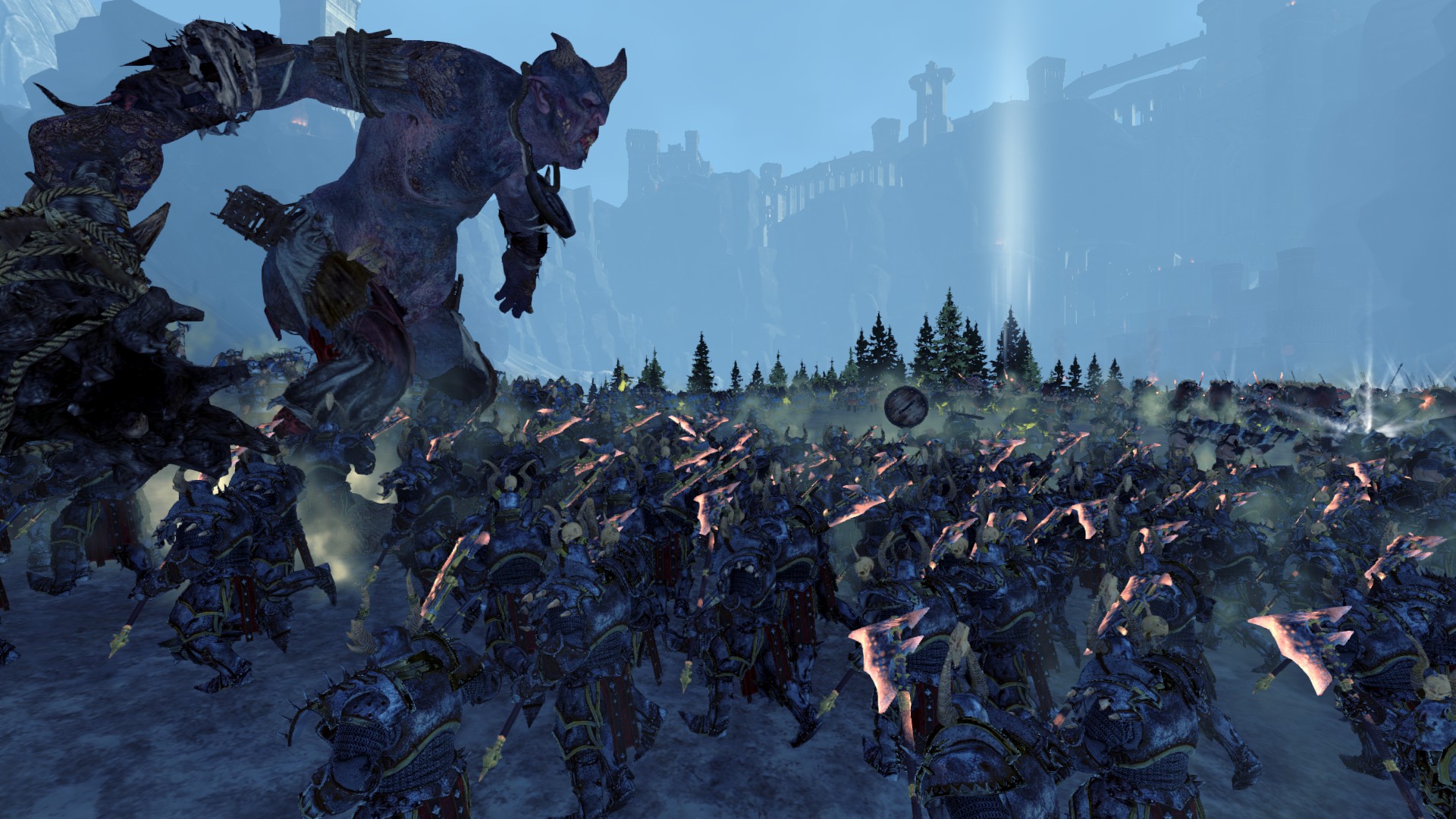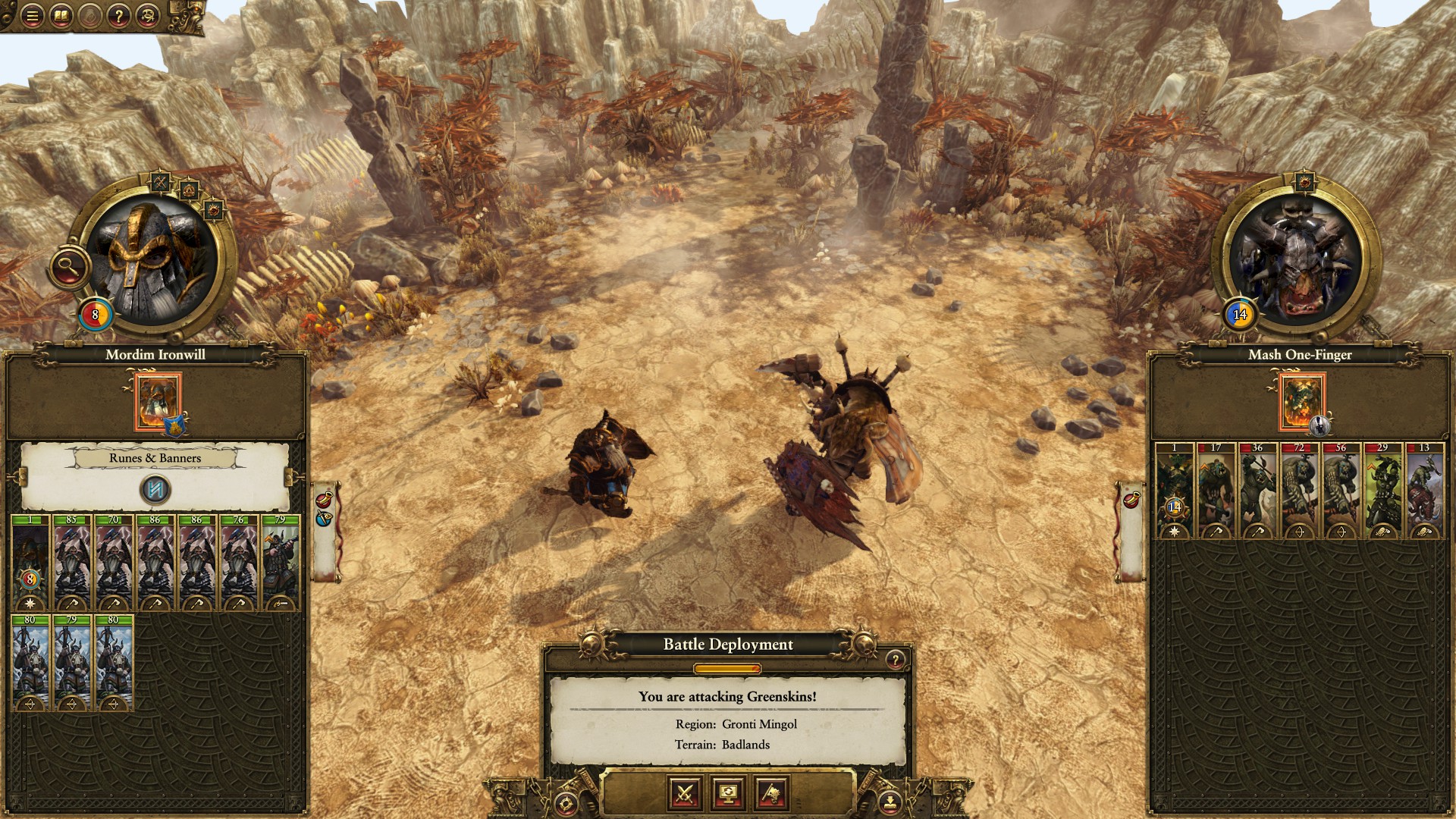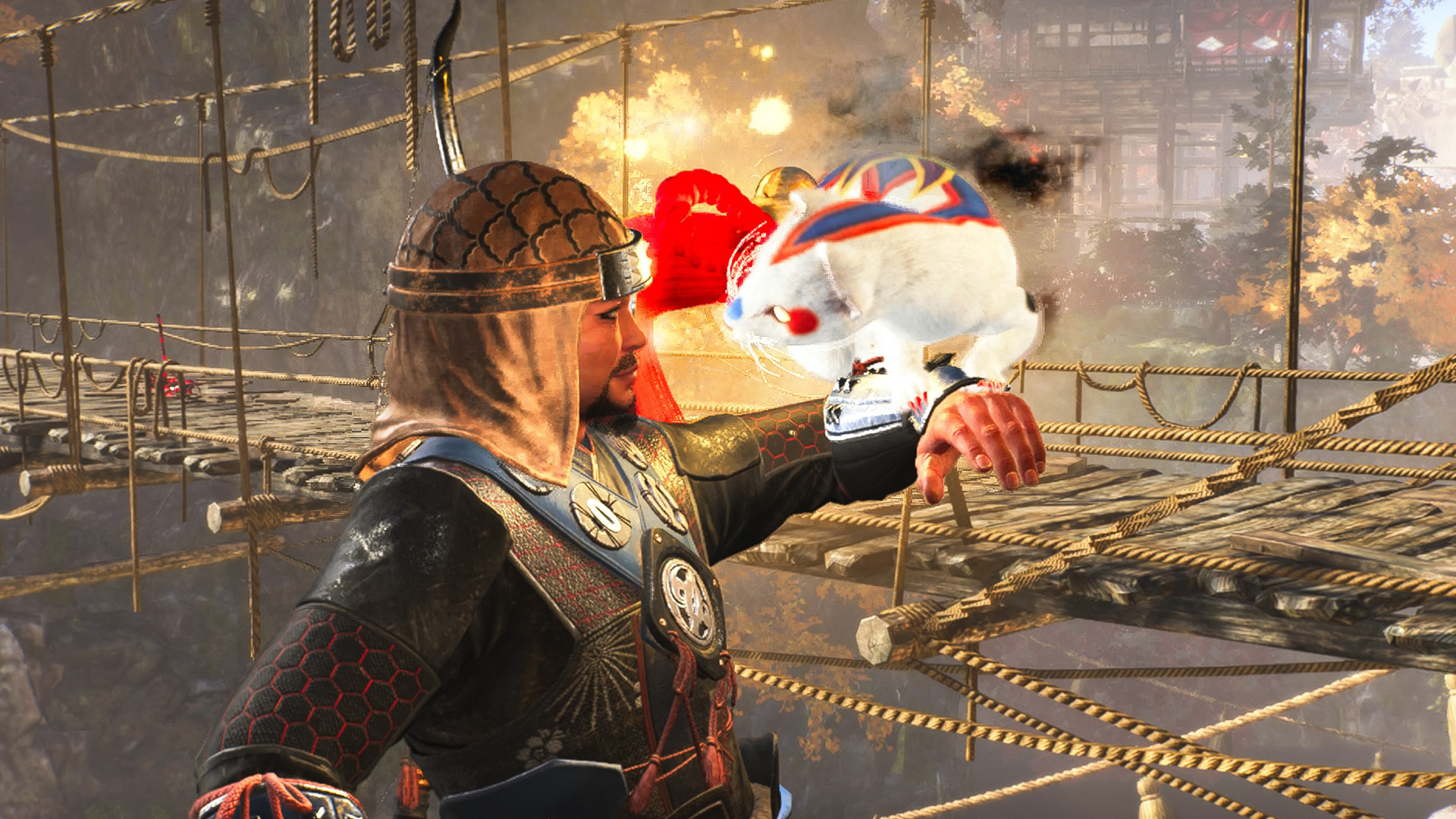GamesRadar+ Verdict
A charismatic, challenging, intricate strategy game that brings the Warhammer world to life.
Pros
- +
Inspiring, urgent campaign with a satisfying end goal
- +
Exhilarating battles on a massive scale
- +
The Warhammer world brought to life with genuine devotion
Cons
- -
Attritional battles against the same faction can get frustrating
- -
Only four races in the standard game
Why you can trust GamesRadar+
If you’re anything like me you’ve probably stared at a Warhammer giant and wondered what it would look like biting the head off a goblin. Or perhaps you’ve asked yourself what crops dwarfs grow, or how long it takes to sail around Bretonnia, or what an empire bugle actually sounds like. Total War: Warhammer answers those questions and more, animating an Old World previously only glimpsed in tatty army books and lovingly-drybrushed miniatures. Not only that, but it’s also the best Total War game in ages.
You control one of four different factions - five, if you include Chaos - locked in conflict in a savage high fantasy setting. The game does a careful job of explaining the motivations of each race, and you’re eased into the campaign with specific goals. While the world itself is intuitive, it’s an intimidating environment for new Total War players. You’re met by pages of stats, mysterious buttons, colourful maps and complex percentages. The naked truth is you’ll have to learn how these work to get the most out of the game, but it’s worth it. If you’ve never played a Total War game before, this is the one to try.
It’s one of the most urgent, compelling campaigns in Total War history, offering purposeful battles in a richly imagined land. It feels alive. Total War games have always featured shrouded engagements in foreign countries, but this is the first one where everything feels like it has meaning. The improvements to diplomacy certainly help. I played as Dwarfs in my first playthrough, and didn’t fight a vampire army until late in the campaign because my allies from the dwarf hold of Zhufbar kept them from my gates. When the Chaos hordes arrived, my human enemies were willing to put aside our differences for the sake of the Old World. Little touches like this made me feel I was part of a larger, reactive universe, and not the only driving force. It’s also constantly threatening. While some Total War games leave you alone to gently accumulate funds, this one compels you to compete, forcing you to take the initiative against enemies who constantly prod your borders for weak spots.
The pacing of the campaign adds variety. The first part of my conquest was spent fighting Greenskins, gradually reclaiming lost dwarf lands in a grim, attritional war. No single faction can hold every settlement on the map, so expanding in the early stages forces you to fight specific enemies - dwarfs, for example, can only take settlements from orcs (or other dwarfs, but if that happens you’ve done something seriously wrong). It might seem limiting at first, but it offers a degree of protection from other factions while giving you a reason to focus on a single enemy. In my playthrough I just managed to annihilate the Greenskins as the Chaos forces reached my borders. The timing was perfect. Just as it was starting to get repetitive I found myself fighting a new type of enemy. A welcome challenge, and one that gave me the chance to regroup without ever becoming complacent. There are also unclaimed settlements in the farthest reaches of the map, enabling the bold, pioneering feeling that comes from colonising distant provinces.

Total War: Warhammer feels more prescriptive than previous Total War titles, because you have set story battles and a leader who can’t suddenly die of old age and leave your plans in disarray. Despite this, there’s still scope for sweeping, emergent stories, which feel like they’re torn from the pages of a crumpled Warhammer tome. In my campaign, while the High King battling the Chaos hordes on his borders, a brave Dwarf lord called Mordim Ironwill was desperately repressing an orc uprising in the south. And then there was the time that my fabulously unhinged Thane, Grunni the Mad, won the long campaign by assassinating a Chaos general. They’re merely asides in a grander story, but they do a tremendous job of adding colour and context. This is your story, and it’s different every time.
Legendary Lords also help to add personality. As in the tabletop game, they’re hugely powerful characters, capable of taking on entire units alone. They can only be injured, not killed; defeat them in battle and they’ll be unavailable for four turns while they convalesce. It’s a sensible way of dealing with Warhammer’s awesomely powerful characters, but it can be frustrating - win a hard fought battle against orc leader Grimgor Ironhide and he’ll reappear with a few turns later with a huge, annoyingly-more-powerful army than the one you destroyed. The accidental solution I found was to leave him alive - in one of my campaigns I left him wandering around the Badlands, defeated and half-dead, while I razed all the orc settlements around him. Not the most heroic solution, perhaps, but a horribly effective one.

Of course, the campaign stuff is meaningless if the battles aren’t similarly grand. Thankfully, they’re amazing. The scale is staggering. For a world of mouldering zombies and wizards, it feels surprisingly real and weighty, to the point it’ll be difficult to go back to ordinary knights and bowmen after this. Giant orcs urge armoured boars into battle lines, sending infantry flying; juddering war machines belch molten metal at stumbling giants; deformed dragons and giant bats tear at each other in the skies above the battlefield. It’s like being in direct control of a battle from Lord of the Rings, and it’s difficult not to stop every two minutes, switch off the HUD and zoom in close to grab screenshots. Things previously only described in Warhammer fluff are brought to life with wildly obsessive detail. I found myself setting up custom battles, just to find out what happens when 20 trolls fight a spider the size of a barn. Let’s call it ‘research’. The AI is competitive, too. You can’t simply outflank the enemy and force them to run, so most heroic victories feel like you’ve truly earned them.
Weekly digests, tales from the communities you love, and more
If you’ve ever had an imaginative thought about the Old World, Total War: Warhammer will fill in the blanks. There are some frustrations that inevitably come from a challenging campaign, but I don’t know what else I could ask of a Warhammer game, except for more of the same.
More info
| Genre | Strategy |



